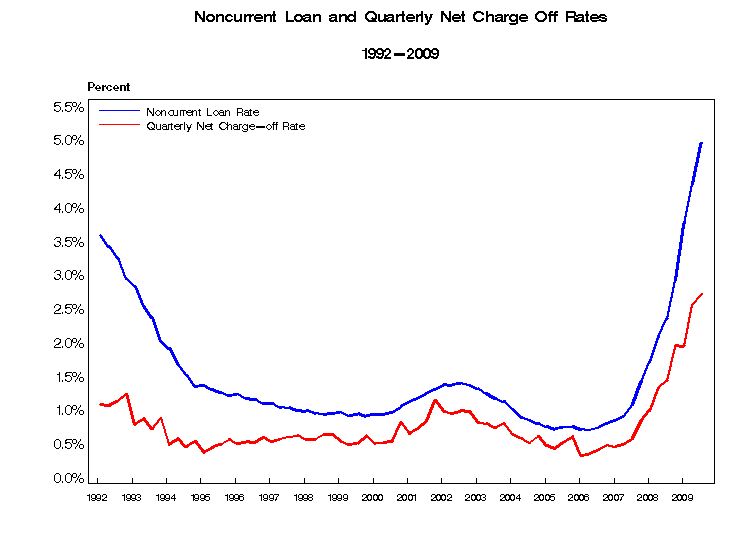Regulators Tell Banks To Lend – “Prudent Lending Will Not Be Criticized”
The FDIC is encouraging banks under its supervision to increase lending to small businesses. In a recent Financial Institution Letter, the FDIC highlights reasons for the decline in lending to small businesses as well as the rationale for banks to lend more aggressively.
The FDIC’s message to banks seems clear – a) regulators are willing to take a lenient position in regards to the risk management policies related to small business lending b) declines in collateral value will not be deemed as a sufficient reason to adversely classify a loan and c) financial institutions that engage in “prudent small business lending” will not be subject to criticism.
Based on the theory that more lending is necessary for an economic recovery, the FDIC is promoting loan growth while most banks are still attempting to come to grips with the huge losses from the last recent round of lenient lending and poor underwriting decisions. Strong collateral values, once viewed as a fundamental principle of sound lending, no longer seem important to the FDIC as they advise banks that declines in collateral values will be largely ignored. The FDIC’s promise that they will not criticize “prudent lending” to small businesses seems especially odd. If a loan was “prudently approved”, why would it possibly be subject to later criticism?
Perhaps the point the FDIC is missing is that banks have reduced lending for very valid and fundamental reasons. Many qualified borrowers do not need new loans due to reduced demand for their goods and services in a weak economy. Banks are still justifiably reluctant to lend to any but the best credits due to mounting defaults and the struggle to raise additional capital. One glance at the chart below clearly shows why banks are more concerned with reducing the current massive level of loan defaults rather than making new loans.

Banks are in business to make loans but they also want to stay in business. Until banks can resolve the mountain of bad debts they are struggling with, the FDIC’s plea to increase lending is likely to be futile. There are valid reasons why lending and loan demand have decreased and until those fundamental issues are resolved, new lending or borrowing is probably not the “prudent” thing to do.
Speak Your Mind
You must be logged in to post a comment.